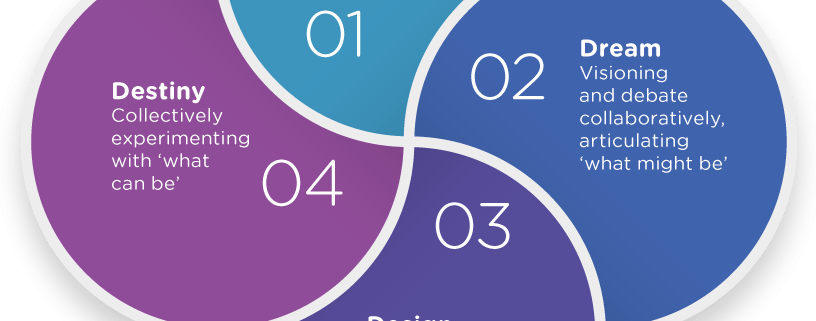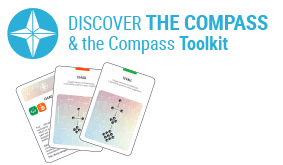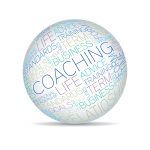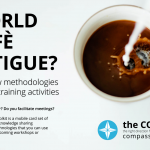Appreciative Inquiry
/In the facilitation of strategic retreats or meetings we use often the “appreciative inquiry” technique to facilitate positive change within an organisation/team. With this blogpost we would like to provide you with some background materials that can help you in designing and implementing your own ‘appreciative inquiries’.
Appreciative inquiry is an excellent method of organizational development that has the potential to engage every stakeholder, every colleague, every member of the organization when it has to deal with a period of change, renewal or improved performance. It is very suitable for strategic planning, project planning, problem solving, stimulating innovation, enforcing positive forces in an organisation, team building, monitoring and evaluation. Everything is based on the assumption that every organization has something that works well, and therefore can be amplified or strengthened. What do we want more? What is good here?
The following steps of the 4D model can be used to create positive change:
Throughout the discovery phase we try to identify what works well in an organisation (or division, team, section) through storytelling or through structured interviews. Once we have named this we move on towards the dream phase in which we start with an envisioning process that tries to imagine what would ideally work in the nearby future. A facilitator moderates the discussion here to focus on good an excellent practices. In a third phase, the design phase we move back to the reality. We start to plan and prioritize the processes that work well and see how we can transform the practices from phase 2 in reality. In a final destiny phase we start with the implementation of the proposed actions.
A handy training technique, called ‘Appreciative Interviews’ used by Liberating Structures can be introduced to start the entire process. This can be complemented with another practical set of questions to accelerate the AI process (adapted from Oliver Serrat, 2008, “Appreciative Inquiry, Asian Development Bank”)
- Think of a peak experience or high point in your work or experience in the organization.
- Within this experience, think about what you have valued most about yourself, the nature of your work and of the organization.
- Think about core factors that give life to the organization.
- What three wishes would you like to have that would heighten the vitality and health of your organization?
David Cooperrider, one of the leading consultants on AI formulates the essence with Peter Drucker’s words: “Leadership is to create an alignment of strengths in ways that system’s weaknesses become irrelevant.”
[youtube=http://www.youtube.com/watch?v=3JDfr6KGV-k&w=560&h=315]
“ I would like to commend you more particularly for your methodology of Appreciative Inquiry and to thank you for introducing it to the United Nations. Without this, it would have been very difficult, perhaps even impossible, to constructively engage so many leaders of business, civil
society, and government.”
(Former United Nations Secretary General Kofi Annan,
speaking to the United Nations Leaders Summit in mid-2004)
Do you have any additional resources to share on appreciative inquiry ?
For cases and practical examples:
http://appreciativeinquiry.case.edu/practice/default.cfm
Appreciative Inquiry Commons, 2008.
http://appreciativeinquiry.case.edu
Article on Appreciative Inquiry from the Asian Development Bank:
http://www.adb.org/Documents/Information/Knowledge-Solutions/
Appreciative-Inquiry.pdf
Appreciative Inquiry Handbook. Cooperider D., Whitney D. & Stavros
J. (2007). San Francisco: Berret-Koehler
Appreciative Inquiry instructional sheet developed by ITC-ILO and OHCHR
http://slitoolkit.ohchr.org/data/downloads/Appreciative_Inquiry.pdf
Appreciative Inquiry and community development
http://www.iisd.org/ai/








Hello everyone,
Appreciative Inquiry has been a tried and tested methodology for advancing positive dialogue for some time. I use this approach as a coach, often and can safely say that the results bear good fruitful communication and relationships with others.
The key issue is to locate and surface what is good..it isn’t always a cyclical process but it can generate a structure to support positive contribution.
It would be good to hear if anyone else has some benefit from using this approach.
Try it. Be brave, be true and put your foot out in the dark and trust something will be there!
Nat